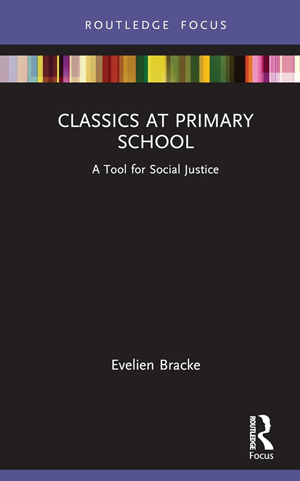
Classics can often be seen as an elitist and exclusionary subject; however, this book aims to tackle this by presenting a toolkit to teach Greek in a primary school context as a method to empower students who might not normally have access to a classical education. The author provides practical steps based on pedagogical research and self-reflection to transform the teaching of Classics at primary school into one that promotes social justice.
With justice being added to the same conversation as equality, diversity and inclusion, Classics at Primary School: A Tool for Social Justice provides a very convincing argument as to how and why the study and teaching of Classics can be employed to further social justice and equity. With a reflection on deprivation in education starting off the book, it provides a helpful background for readers. This also states the effect that that deprivation can have on students’ aspirations. The approaches discussed are research- and community-based, and the author spends much of the book discussing how Classics can provide learning experiences that engage effectively with students and the wider local communities in which they are situated.
Self-reflection is at the heart of this book, which is in itself important for effective teaching practice. This book emphasises how much it is at the heart of social justice education, which is evident by the author's reflection on her own practice, and what lessons can be learnt more widely with the goal of improving teaching and widening the perspectives of those who teach. Each chapter helpfully ends with a useful reflective tool, providing the reader with practical steps to implement in their pedagogy.
This book is particularly helpful to any stakeholders within primary education who are currently teaching Classics in some way, and for those who are interested in introducing the subject to their primary school classes. While the focus of the book is on primary school education, there are strategies that can be relevant for those who are teaching Classics in Key Stage 3 (ages 11–14).

